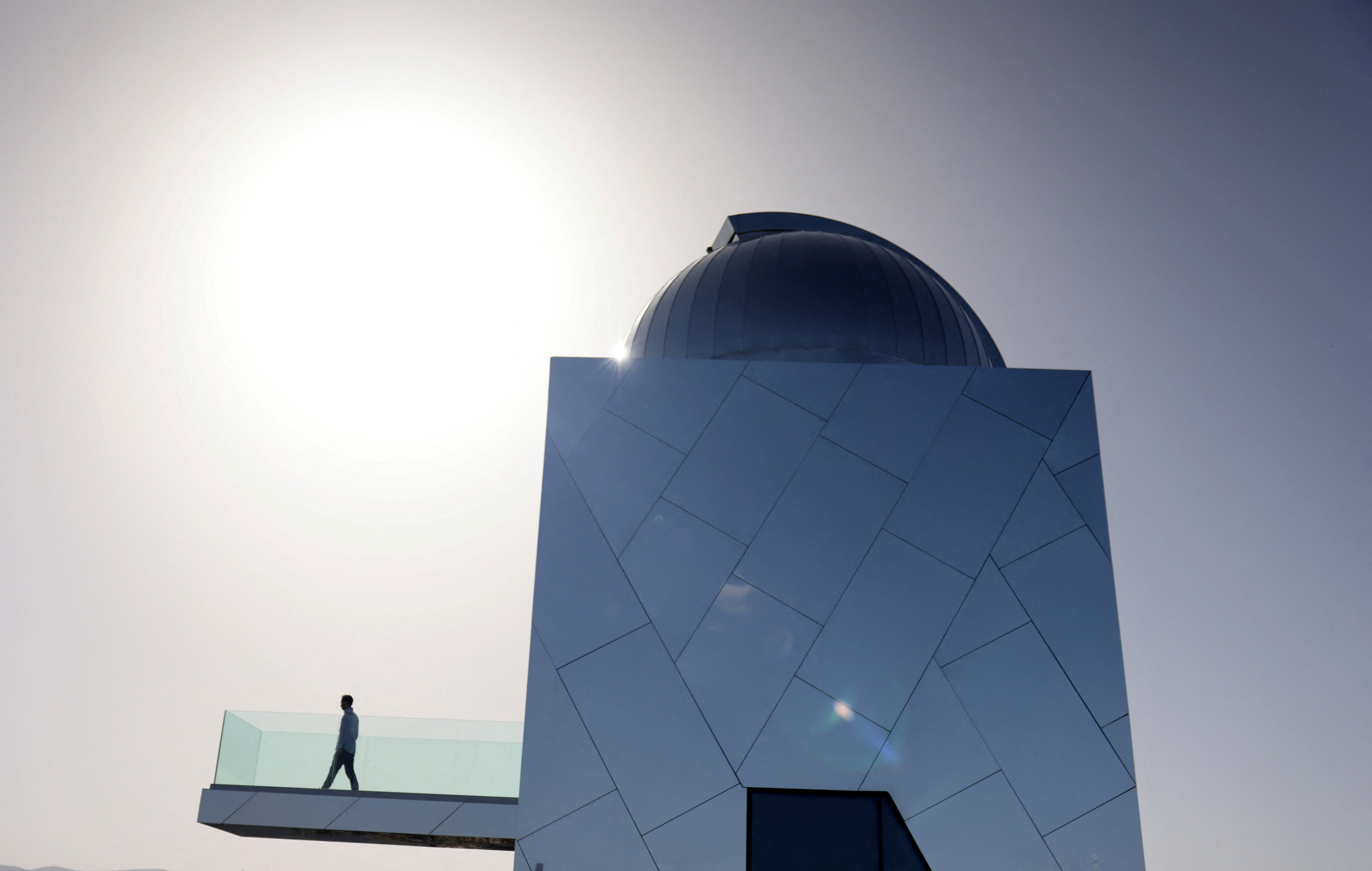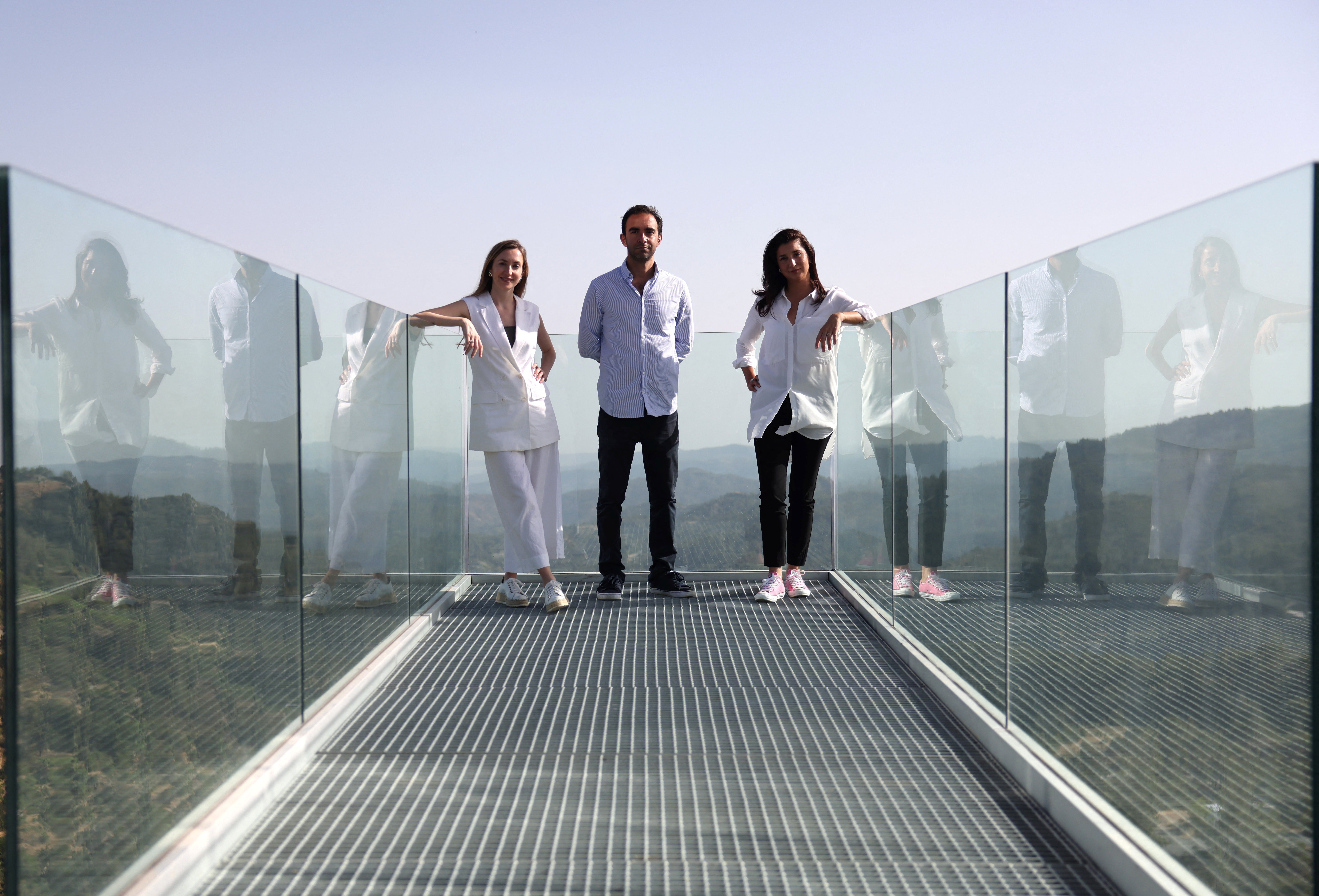A new space observatory in Cyprus looks like it just uncloaked itself on the set of a sci-fi movie and is ready for takeoff.
Perched high on the Troodos mountains in the centre of the island and with an unobstructed view of the skies, the 1.77 million euro ($1.90 million) publicly funded Troodos Observatory was inaugurated in May. Purveyors hope the project will encourage visitors to areas increasingly affected by urbanisation and broaden a depth of celestial knowledge.
Designed by sci-fi enthusiasts, architects and siblings Elena, Nicodemos and Cassandra Tsolakis, the similarity to a spaceship wasn’t intentional but the nature of the project instinctively and perceptively lends to that impression, says Elena Tsolakis.
“Yes, from some angles the building might look like a spaceship. Was that the intention? No, but that is what came out,” said Elena Tsolakis.
Blink and you could miss it.

Reflective cladding means that the angular structure overlooking the hamlet of Agridia could be hiding in plain sight, meshing seamlessly either with the terrain or the skies, depending on the angle of vision.
“Part of our brief and our main objective was to create an iconic building for the area and we think that has been achieved,” said Nicodemos Tsolakis.
The observatory, part of the EU-backed Geostars project to regenerate isolated rural areas in parts of Cyprus and Greece, is equipped with a 20-inch reflective telescope, the biggest on the island, under a rotating 5.6m wide dome and a solar telescope beneath a hydraulic roof.

Elena Tsolakis, recently named by the Royal Institute of British Architects (RIBA) as one of the 100 most influential female architects in the world, said each public space should tell a story and offer visitors a unique experience.
“What we are trying to replicate is that feeling of wonder, especially for children, to have that sense of wonder and curiosity and yearning to know more about the world beyond the everyday existence that we have,” she said.
A jutting protrusion which can be used as an astromarina for mobile telescopes looks like it is emerging from the earth; part of…
Click Here to Read the Full Original Article at The Independent Travel…
